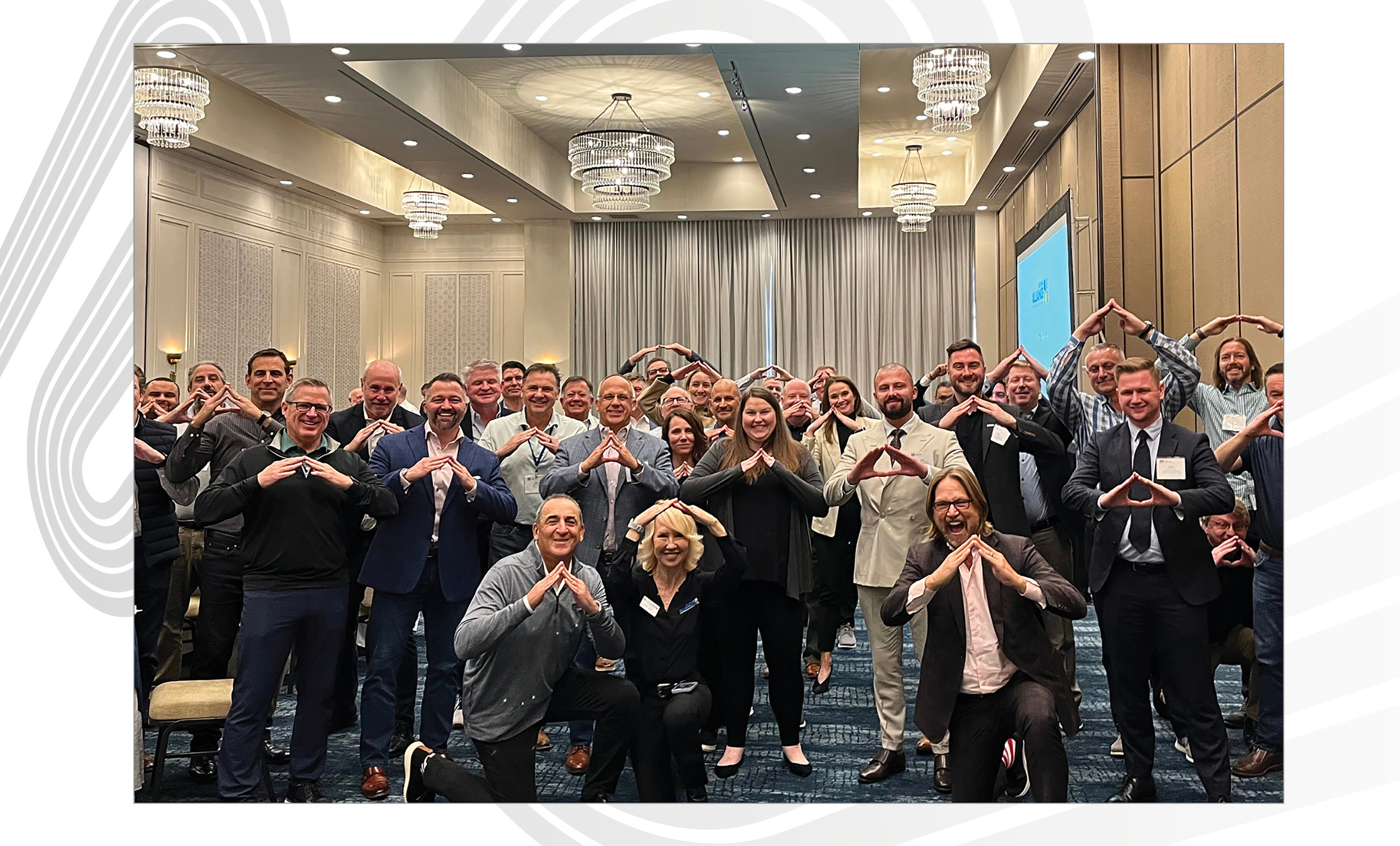
The business world is full of talk about leadership. Search Google, and you will find article after article about how to become a better leader and all the magic that will occur when you do: People will never leave your company; production will soar; and profits will exceed your hopes and dreams. There is truth to these claims, but “results may vary.”
Leadership is important because your company is composed of people, and working with people requires good leadership. Good leaders inquire about and encourage people’s physical, mental and emotional wellness. Good leaders ask employees about their children and hobbies. Good leaders remind employees they are part of something bigger than themselves and bigger than the company.
In the roofing industry, good leaders remind employees of the vision and importance of their work: providing essential shelter for hundreds or thousands of people.
Solid principles make companies strong, jobs productive, customers satisfied and employees energized about their work and careers at your company. Leadership is not the only key to success, but it is an important one.
What is leadership?
Leadership focuses on humans as individuals. To understand what this means, it is helpful to look at leadership versus management.
Management focuses on tasks and measurements. It is composed of to-dos and whether the to-dos were accomplished. Examples include:
- Was the job completed on time?
- Is fall protection set up?
- Are there enough fire extinguishers?
- Is everybody present and on time?
- How long will it take to wrap up the job?
- Did the superintendent talk to the customer today?
Management skills are essential to the smooth operation of any business, and the number of tasks managed in a roofing company can be astronomical. But management is only half the equation.
People are the most complicated aspect of roofing because you cannot manage everything about them. There is no checklist or to-do for capturing people’s hearts and imaginations for the importance of roofing. There is no simple fix for a team member’s distraction after he finds out his child has cancer. Leadership is about appreciating and embracing the human condition.
According to practicalpie.com, a website dedicated to academic students studying psychology, the human condition is defined as the shared experiences, emotions and challenges common to all people. It encompasses the positive and negative aspects of human existence, including joy, love and fulfillment, as well as suffering, pain and mortality.
Most people, unless they are therapists, counselors or social workers, didn’t begin their careers with an eye toward addressing the human condition. The truth is if you have people working with or for you, part of your job is to appreciate the human condition. Appreciating, embracing and acting upon it is leadership.
What if my company doesn’t have it?
Everyone who leads a team wishes, on some level, employees would show up, execute their tasks perfectly and behave in ways that allow companies to move work forward. Most of us know there is more to working with people than that, so we allow for some team building, flexibility for family crises and other things. But many bosses view these as outliers—little potholes on the road to production and not the focus of their businesses.
Viewing employee engagement this way will lead to frustrations and missed opportunities because people are not equipment. Equipment doesn’t work differently from one day to the next because of outside distractions or care what kind of job it is working on, but people do. The relatively simple break, fix and replace cycle of machinery does not correlate with people.
Without leadership, idiosyncrasies of people will be frustrating. But with leadership, you and others who supervise people will be better able to leverage individuals’ personalities to pair them with work to which they are suited, address problems in ways they will understand and be flexible on days they are at their worst.
This does not mean you should allow work to be held hostage to people’s moods or allow poor workmanship from people whose lives are challenging. However, thinking about leading people rather than managing them will allow you to address issues comprehensively and demonstrate compassion even as you hold people accountable for their performance. Embracing the constantly changing dynamics of humans collectively, and people individually, will allow you to approach workforce challenges with a deeper perspective.
In companies where leadership is lacking, employees will be less likely to develop deep roots either for their work or company. They are as likely to leave as to stay and will not be as invested in a company or their work. When people sense they are not cared about, they also do not readily care.
How do we develop it?
Leadership tips, techniques and seminars are ubiquitous. Leadership is a mindset more than a method.
Ask yourself the following:
- Do I care about my employees?
- Do I know personal information about my direct reports?
- If someone on my team were struggling, would that person tell me?
- Do I expect my employees to leave their problems at the door, or do I appreciate there will be some ups and downs?
- Do I know what motivates each person on my team?
If you can’t answer these questions to some extent, they are the place to start.
You may wonder: What if I truly don’t care or don’t want to know people who work at my company? You still can learn skills, but they won’t be as effective without owning the passion for working with and leading people. In this case, you may consider bringing someone onto your team who has more leadership capacity.
There are many resources for developing leadership skills. Following are some roofing-specific options offered through NRCA.
Foreman Leadership Training
This course encourages field leaders to focus on their personalities and communication styles and leverage this awareness as they consider the crew members they lead. The goal of the course is to provide foremen with leadership tools to enhance productivity, quality and loyalty and help them realize their jobs are less about roof system installation and more about managing and leading others.
The course acknowledges the inherent importance of good management and reminds participants task management is only half the equation whereas effective crew motivation relies on leadership skills.
Future Executives Institute
FEI is a three-year program for senior leaders of roofing companies. Topics run the gamut from finance and contracts to strategic planning and leadership. During the three years, executives discuss how to run roofing companies considering the important balance of management and leadership.
Accelerate your business
If a bicycle only has one pedal, you can still pedal effectively on flat ground. But if you want to accelerate or maintain pace on an incline, you need both pedals. Similarly, your roofing company can move forward successfully under the power of good management tactics alone. But if you want to accelerate your business to another level or maintain pace on an incline, you need both pedals: management and leadership.
AMY STASKA is vice president of NRCA University.



